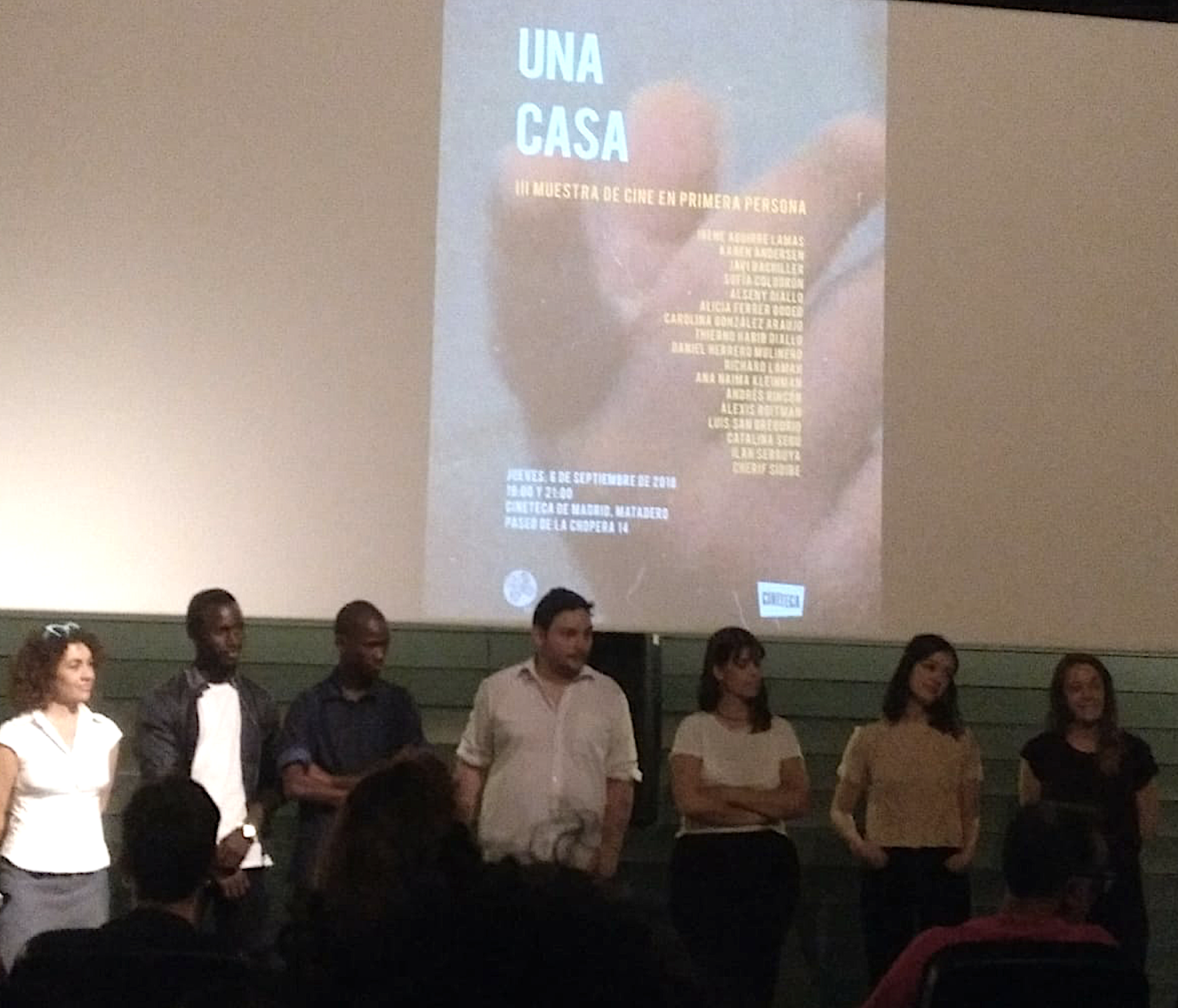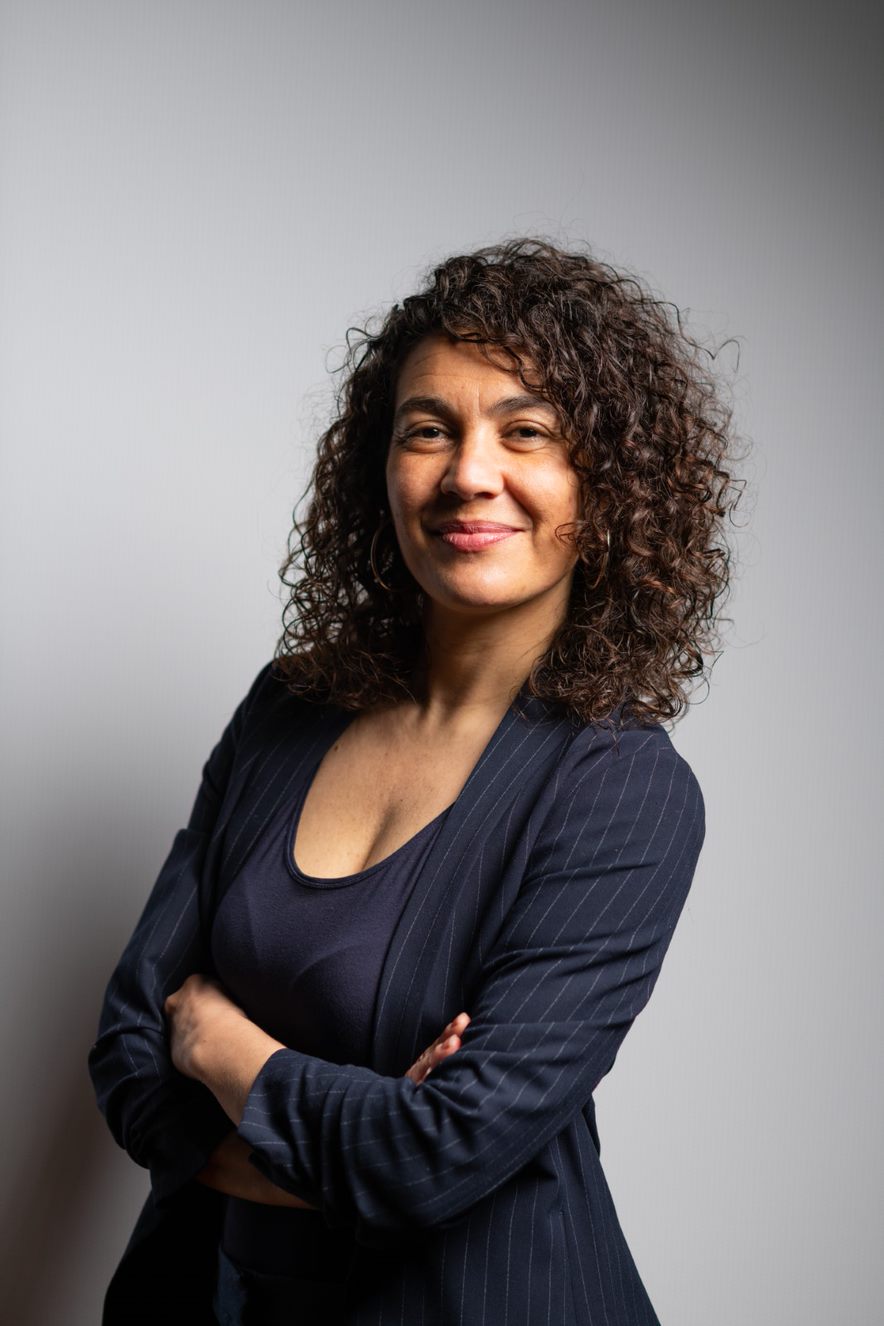When I was 17, the Moroccan-Spanish border was the seventh most unequal border in the world. I grew up in the fortified city of Ceuta, a Spanish exclave in North Africa that has become a symbol of the border spectacle. The fence separating Ceuta from Morocco was built in 1995, but the border was already there as a colonial difference. For twenty years, this border has become an icon of fortress Europe, where journalists and filmmakers take pictures of people trying to jump the fence or cross the Strait of Gibraltar to the mainland. When I became a filmmaker myself, I wondered why we didn't see more images of those who had the courage to migrate. The lack of mobile phones among those on the move is one factor. The crescent-shaped iconoclasm of the borderlands is another. Their phones (and the images they create) can be lost, stolen, confiscated or sold for money or favours. Then I started collecting border-crossing videos along Europe's external borders in North Africa as part of the Cinema and Mobility research project (2018-2022). Later, I began to explore the potential of using participatory filmmaking within the Reel Borders research project (2021-2025) to place migrant voices at the centre of my research. Working in the horizontal dynamics of co-authoring films, this set of audiovisual methods has several potentials to challenge border and migration narratives from a bottom-up perspective.
With notable exceptions, academic approaches to participatory filmmaking tend to oscillate between scepticism and a-criticism. In migration and border studies, participatory filmmaking allows for the collection and creation of videos related to migratory experiences and their repackaging as self-representative films. Although it is not a magic bullet for producing transformative effects in the politics of migration, it contributes to the creation and dissemination of knowledge about borders and migration from the perspective of migrants. First, however, it is helpful to ask a few questions before designing research that involves this set of methods: What are the potentials and dangers of studying migration and borders? How does it affect the participants - the filmmakers, the communities, the research field and, ultimately, society? How can these changes be measured?
This entry is the first of a series of blog posts I will publish here to explore this method in the borders between Ireland/Northern Ireland, Morocco/Spain and Syria/Turkey. As a border-dweller, filmmaker, film trainer, researcher and privileged migrant, I will establish a dialogue with other practitioners using participatory filmmaking to materialise complex and invisible aspects of forced migration and borders. In doing so, we can contribute to implementing this method in migration and border studies while exploring its methodological and ethical challenges. I will start with the first workshop I set up in Ceuta in 2018 among four young participants from Guinea Conakry: Alseny, Habib, Richard and Cherif. They used the footage they recorded in Morocco before crossing and created new videos on their daily life at the Centre for Temporary Stay of Immigrants (CETI). The resulting short film, The Migrant Life, is a self-portrait where they relate their struggles to cross into Ceuta and to be retained in the CETI during a massive strike due to the push-back of 602 migrants.
Moreover, the workshop brought up in-depth conversations about who can move and under what conditions while wondering if the subaltern subjects could make films without funding from 'First world' filmmakers or academics. These questions were extended to the films' audiences during the First Person Film Festival "A Home" in Madrid, where Alseny and Habid discussed their film. Furthermore, the collaboration with Alseny has gone beyond this workshop. He was the co-trainer of another participatory filmmaking workshop set in Madrid in 2019, in which 15 participants directed the short film The Way it Comes using images without faces to avoid exposure, as some of them were undocumented migrants at the time. Likewise, Alseny co-presented a paper about this methodology at the IMISCOE annual conference in 2022 online, as he cannot travel from France because he remains undocumented. 
Habib and Alseny presenting their film in the III Edition of the 1st Person Film Festival 'A Home'. Madrid, September 2018. Photo © Irene Gutiérrez
Since my first encounter with people on the move in Ceuta and the Moroccan side of the border during the making of my short film Border Diaries (2013), we have been collecting and preserving a collaborative migrant archive enriched by these and subsequent participatory workshops. These workshops have not only functioned as cinematic border encounters, expanding our understanding of how to deal with migration regimes through first-hand experience. But they also transformed this migrant archive from unseen on-the-ground footage into films shared with a broad audience. Moreover, the audiovisual archive of migrant memories we have collected has highlighted how images move more easily than people in a European migratory regime that, far from being a 'crisis', is a structural problem stemming from the colonial continuum. However, for these private recordings to become films and to circulate among a broad audience through participatory filmmaking, we need to rethink this methodology from technical, ethical and aesthetic points of view to challenge some biases that can undermine a PF project by reproducing problematic categorisations and (self-)representations, and hegemonic structures and dynamics. In the next few posts, I will discuss some of these aspects in more detail.
To read other PhD blog posts about participatory filmmaking: here and here
Funding:
This article is part of the research projects Reel Borders (European Research Council Starting Grant #948278) and Institutional Documentary and Amateur Cinema in the Colonial Era (Spanish Ministry of Science and Innovation funding PID2021-123567NB-I00).
Bio
Irene Gutierrez is an award-winning documentary filmmaker from Ceuta and a PhD fellow of the REEL BORDERS ERC Starting Grant project. She is part of the research groups ECHO (VUB) and TECMERIN (University Carlos III of Madrid), where she works on themes of migrant self-representation through participatory filmmaking workshops. As a filmmaker, she has directed "Border Diaries" (2013), "Hotel Nueva Isla" (2014), "Connected Walls" (2015), "Exile Diaries" (2019) and "Between Dog and Wolf" (2020). Her films have been screened in film festivals and art venues such as Berlinale, Rotterdam IFFR, MoMA Documentary Fortnight or Lincoln Center. More info: https://reelborders.eu/Irene-profile
